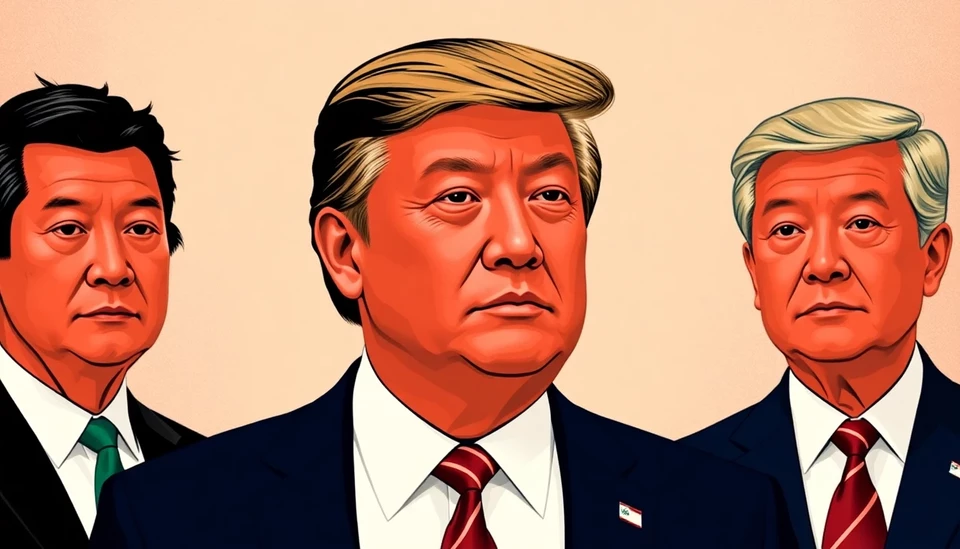
In a surprising turn of events, former President Donald Trump's renewed threats regarding tariffs have negatively impacted Chinese investments in Mexico, creating uncertainty in an already unstable environment for foreign investors. As firms in China aim to broaden their global footprint, many have placed their plans on hold due to fears of potential tariffs proposed by Trump during his recent public appearances.
Despite the increasing attractiveness of Mexico as a manufacturing hub—especially in the wake of the U.S.-China trade conflicts—Chinese companies are now hesitating to commit to new ventures. The situation is exacerbated by the ongoing geopolitical tensions and the lingering effects of the pandemic on global supply chains, which have made investors more risk-averse.
Sources indicate that the uncertainty stemming from Trump's warnings could lead to significant consequences for Mexico's economy, which has been keen to harness the influx of Chinese capital. Various sectors that could benefit from Chinese investments, such as technology and infrastructure, may see reduced growth prospects as companies remain on edge, waiting to see how political developments unfold.
Analysts warn that this scenario could lead to a slowdown in job creation and economic development within Mexico, a nation already wrestling with various social and economic challenges. Trump’s bold rhetoric resonates with his base, continuing to drive a wedge between American and Chinese relations—a trend that investors are now forced to navigate.
The ramifications of Trump's tariff threats reach beyond investment. Mexican officials have previously celebrated the increasing ties with Chinese businesses, viewing them as a crucial component in bolstering local economies and tapping into the wealth of China’s growing market. However, this recent development has instilled a sense of apprehension about the future of bilateral trade and investment.
China, always keen to explore international markets, now finds itself at a crossroads. While its companies see the potential in Mexico's economic landscape, they must also weigh the risks associated with entering a market that could be impacted by policy changes and tariffs dictated by U.S. politics.
In reality, Trump’s strategy seems to be about more than just tariffs; it’s an effort to shift global supply chains. By exerting pressure on China and other countries, he aims to steer investment back to the United States. However, the unintended consequence of this approach may further complicate the landscape for Mexican industries countenancing the necessity of Chinese ties for their expansion and success.
With ongoing negotiations and relations in flux, it remains to be seen how the future of Mexican investments from China will unfold. Investors hope for clarity and stability, yet current indications suggest that until a consensus is reached on trade tariffs and political rhetoric, Mexican markets could continue to face headwinds.
The situation highlights the intricate dynamics of international investment, where politics play a crucial role in shaping economic opportunities. Stakeholders in Mexico must brace for continued volatility while seeking ways to attract foreign capital amidst a challenging backdrop fueled by historical and contemporary political relations.
As developments progress, both Mexico and China will undoubtedly be watching closely, preparing strategies to either mitigate risks or capitalize on the changing tides of investment opportunities in a restructured global economic environment.
#TrumpTariffs #ChineseInvestment #MexicoEconomy #GlobalTrade #USChinaRelations #InvestmentUncertainty #EconomicImpact
Author: Rachel Greene




